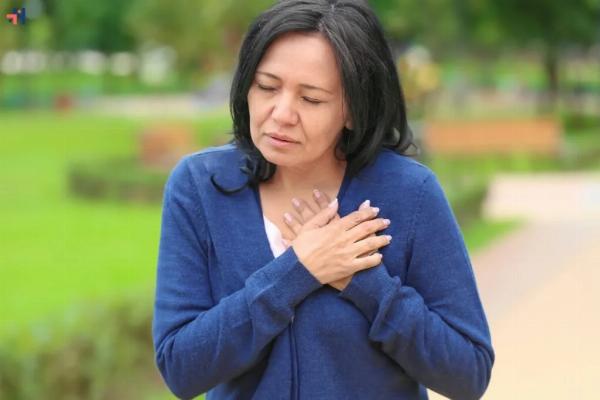 Get SEO-Optimized Articles – Written for Humans, Loved by Google!
Get SEO-Optimized Articles – Written for Humans, Loved by Google!
Connecticut Father Dies After Battle with Rare Mosquito-Borne Virus
Written by HealthCare360 » Updated on: June 17th, 2025

Connecticut Father Dies After Battle with Rare Mosquito-Borne Virus
Mosquito-borne virus kills Connecticut father | Healthcare 360 Magazine
Source: wideopenspaces.com
Tragic Loss After Five-Year Battle
A Connecticut father, Richard Pawulski, tragically passed away on Monday after a prolonged struggle with complications from Eastern equine encephalitis (EEE), a rare mosquito-borne virus he contracted while clearing brush in his wooded backyard five years ago. He was 49 years old. His death follows a recent surge in EEE cases, which health officials are struggling to understand.
EEE is a severe disease that targets the brain and can lead to rapid physical decline, permanent disabilities, or death. Richard’s daughter, Amellia Pawulski, expressed the profound impact this illness had on their lives, emphasizing that everything changed in an instant when her father fell ill.
Ultimately, Richard succumbed to a methicillin-resistant Staphylococcus aureus infection, a type of staph infection that became complicated by his EEE-related health issues, which included a bacterial infection in his heart, liver failure, and a traumatic brain injury.
Sudden Onset of Illness
Richard fell ill shortly after doing yard work in their lush Colchester backyard in August 2019. After discovering a new mosquito bite, he began experiencing severe headaches and vomiting. Emergency surgery was performed to relieve swelling in his brain, but complications from the procedure left him in a coma for two months.
Initially, doctors were puzzled by Richard’s rapid health decline. Despite being a cancer survivor and a diabetic who led a healthy lifestyle, the sudden onset of his symptoms left them stumped. It wasn’t until other EEE cases were reported in the state that they suspected he might also be infected. That year, there were four confirmed cases in Connecticut, and Richard was initially celebrated as the sole survivor, though his recovery was tenuous.
Richard’s prognosis was grim, and his family faced the heart-wrenching decision of whether to keep him on life support. Doctors warned that he would likely never regain his former self. Just as they prepared to transition him to hospice care, Richard unexpectedly awakened from his coma and began to communicate, though this improvement was short-lived.
Ongoing Health Struggles
For the next five years, Richard endured a series of health complications, including a traumatic brain injury, liver and kidney issues, seizures, and repeated bouts of pneumonia. His mental state fluctuated, with some days spent in confusion about his surroundings and the year. Thankfully, in the days leading up to his passing, he was coherent enough to express his love to his wife and daughter.
The emotional toll of Richard’s illness has been heavy on the family, particularly as they navigate their lives with limited support. Margaret, his wife, shared the immense strain the situation has placed on their family, particularly given their limited connections in the area.
Amellia reflected on how EEE dramatically altered their lives, noting that her father always maintained a positive outlook. He often reminded others of the simple joys of waking up and being able to perform everyday tasks independently.
Rising Cases of Eastern Equine Encephalitis
According to the Centers for Disease Control and Prevention (CDC), about 30% of EEE cases are fatal. This disease, while rare, is particularly severe and bears similarities to other mosquito-borne illnesses such as dengue fever and West Nile virus. Dr. Roy Gulick, chief of infectious diseases at Weill Cornell Medicine, noted that EEE is considered one of the most serious mosquito-borne diseases.
This year, at least ten cases of EEE have been confirmed across the United States, including a recent death in New York and another case in New Hampshire, indicating a troubling increase in infections compared to previous years. In New York, the state reported its first confirmed EEE case since 2015, and health officials have detected infected mosquitoes in at least 15 counties, a significant rise from previous years.
Preventative Measures
The reasons behind this surge in cases remain unclear, but health officials are closely monitoring mosquito populations and infected horses, which are also susceptible to the mosquito-borne virus. Dr. Gulick emphasized the importance of public awareness and preventative measures to avoid mosquito bites, particularly as peak infection times typically occur in August and September. While winter will eventually reduce mosquito populations, he urged caution during the fall months.
There is currently no vaccine for EEE, making it crucial for individuals to wear long sleeves and pants and use mosquito repellent when outdoors. Avoiding outdoor activities during dusk and eliminating standing water can also help reduce mosquito breeding grounds.
Dr. Gulick stressed the seriousness of the situation and urged the public to take precautions to protect themselves against mosquito bites.
Note: IndiBlogHub features both user-submitted and editorial content. We do not verify third-party contributions. Read our Disclaimer and Privacy Policyfor details.
Copyright © 2019-2025 IndiBlogHub.com. All rights reserved. Hosted on DigitalOcean for fast, reliable performance.













